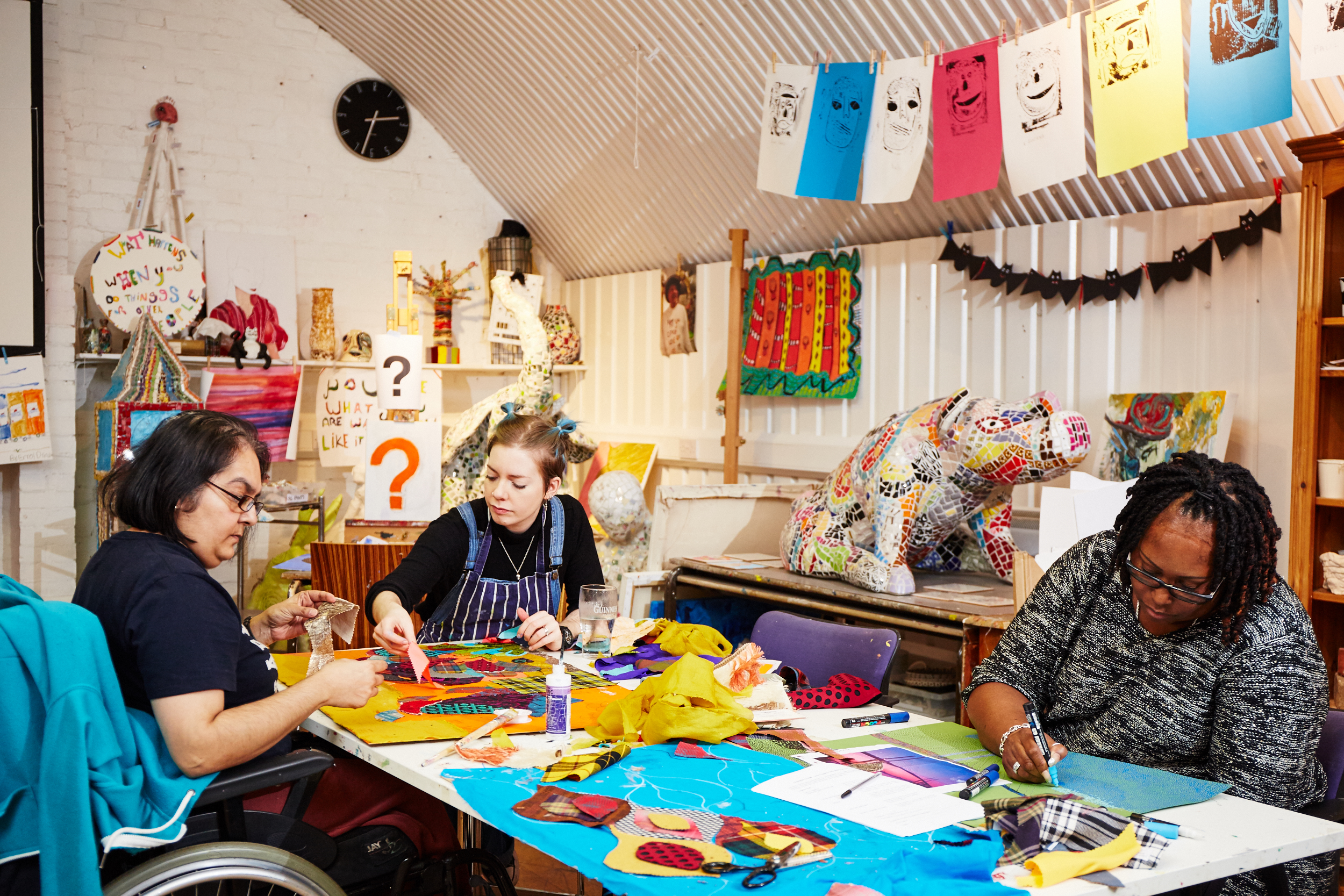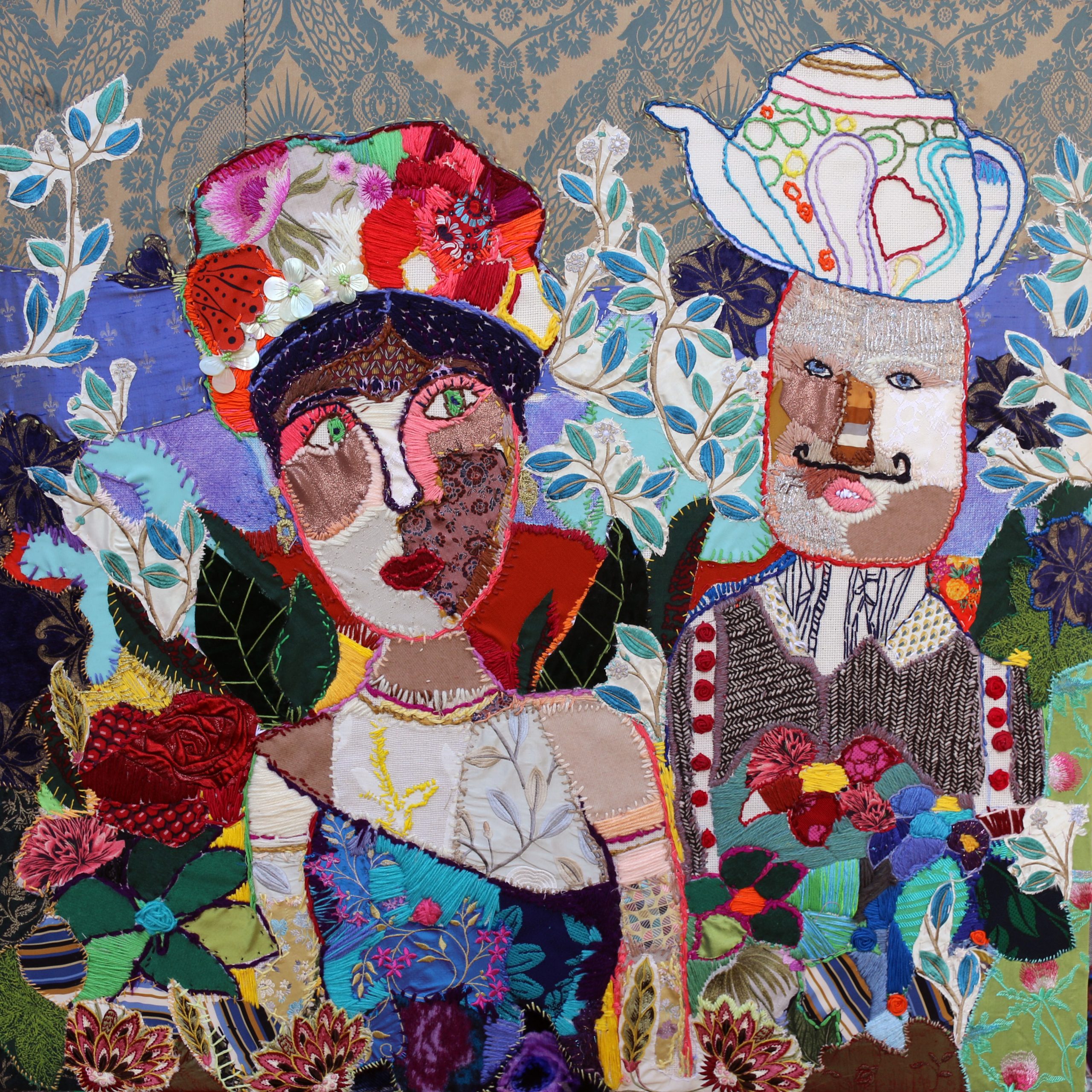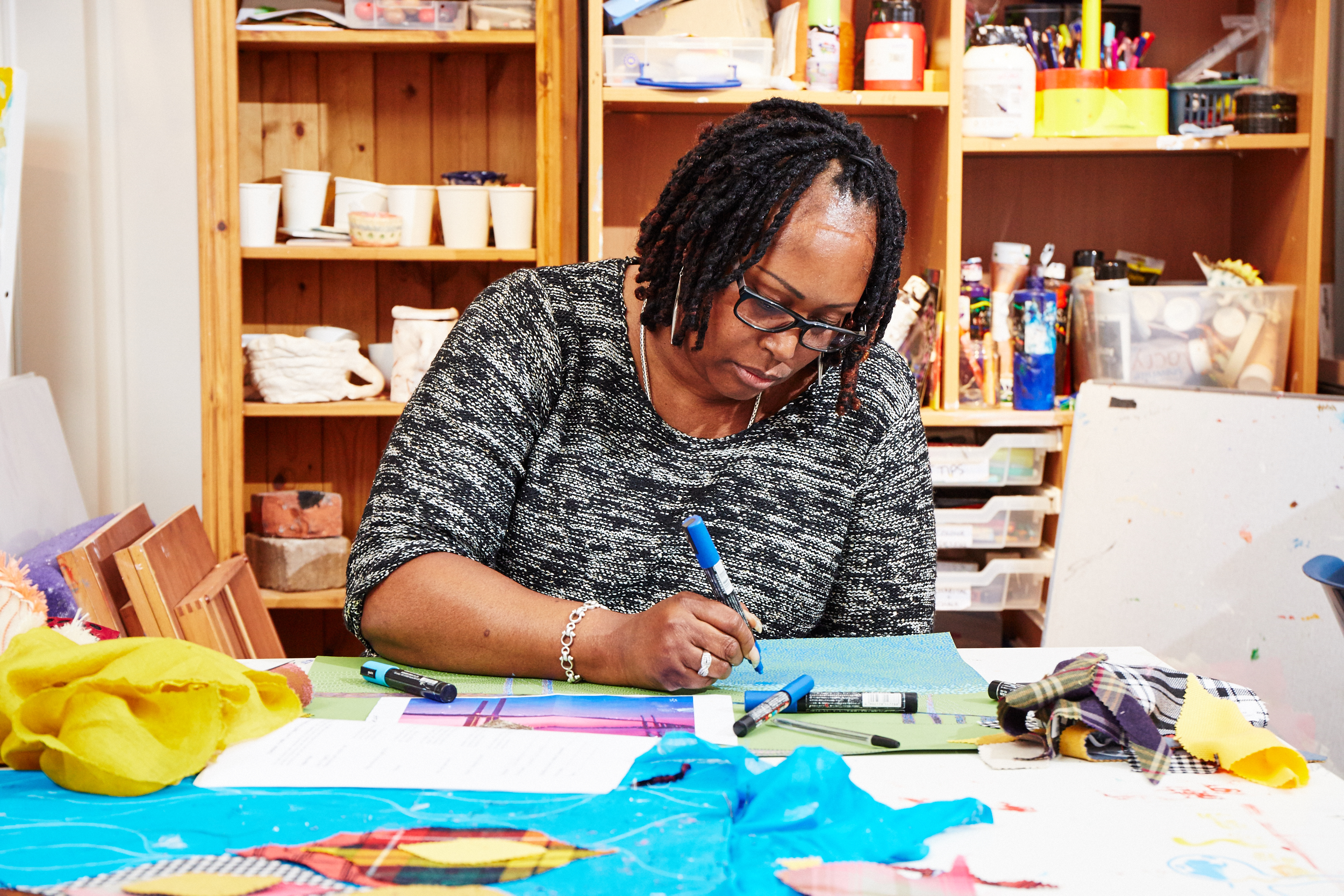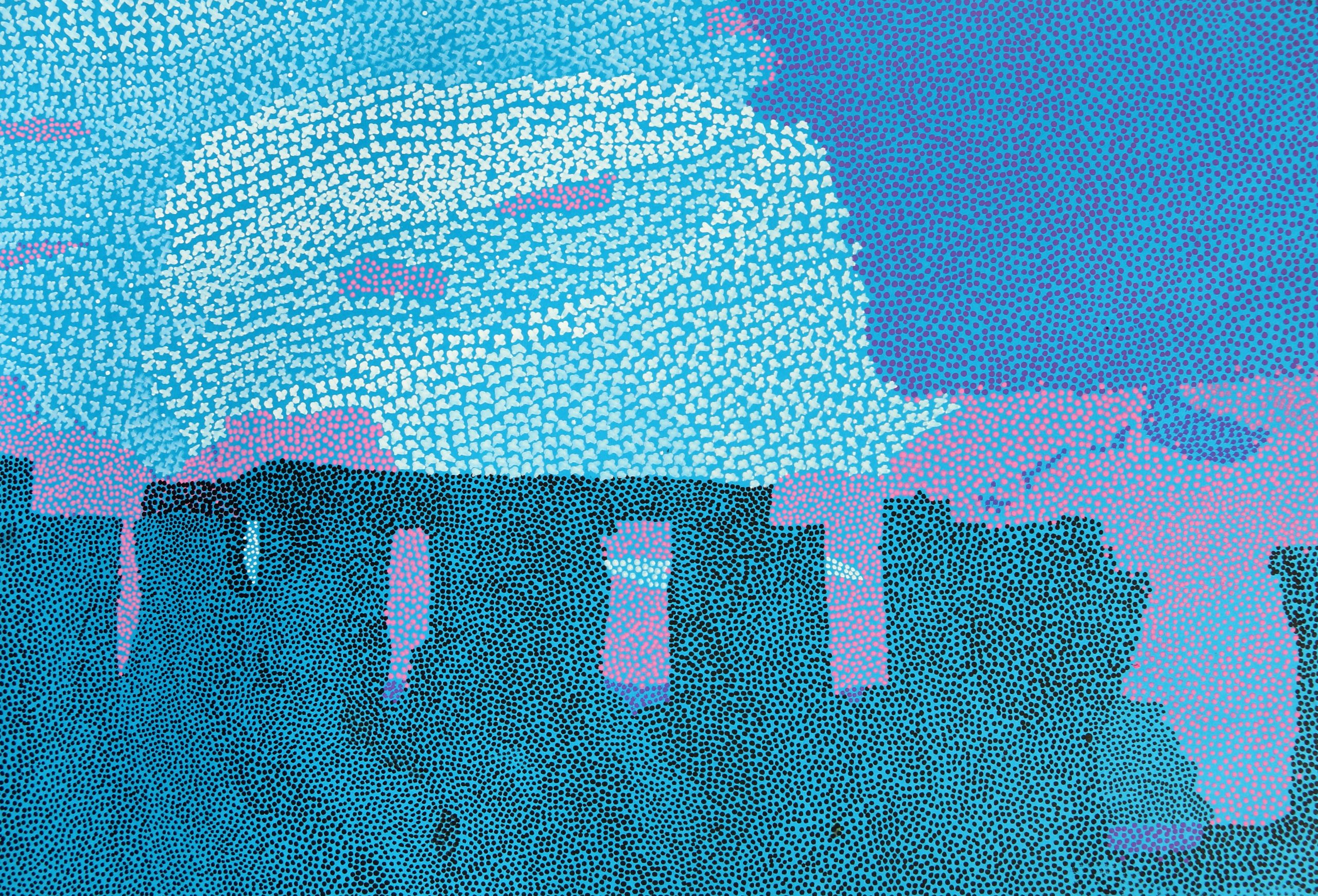Category: Community Programme — Published:
Community Conversations is a series of discussions prompted by networks, collaborations and friendships developed through the Whitechapel Gallery’s Community Programmes. We want to share the perspectives of the groups we work with and to reflect on a year that revealed the strength, resilience and power of community.
Headway East London is a charity supporting survivors of brain injury. They run a day centre in Hackney, which welcomes 150 members across thirteen London boroughs. Their art studio, Submit to Love, is a vibrant space co-created by staff and members. Many of the artists began their practice after receiving encouragement from staff, and so the work produced here often has a direct or indirect connection to the experience of coming to terms with life after a brain injury.
Members of Headway East London have participated in Whitechapel Gallery’s community workshops for the past five years, working with different artists to make collective creative responses to what we discover together in the Gallery. In their collaborations with Whitechapel and other institutions, they challenge assumptions about who can be recognised as an artist. In our conversation, we discussed how the unexpected events in our lives and the choices we make shape our identities. We spoke to Emily, art studio coordinator, Laura, communications manager, and Sandra, an artist who developed her practice in the Submit to Love studio.

Who are Headway East London, and what do you do?
Laura: We work with people affected by brain injury. Our members are people who, for the most part, were born without any disability. They may have had a stroke or illness, or suffered a head trauma from an accident or assault, and as a result live with long-term disability. These disabilities can be physical and visible, perhaps affecting the individual’s movement or speech. But the big challenges of brain injury are often its hidden aspects – the emotional and behavioural impacts on memory, concentration and planning. It affects individuals in many different ways. We support members to explore what is possible after brain injury; to discover new identities and meet new people.
Emily: We are member-led, so what we do each day depends on what our community wants to do. We run music, dance, writing groups, and in our onsite kitchen members prepare meals for the whole team every day. One of our most important projects is our art studio, Submit To Love, where we support members individually to develop their own creative practice. The studio is a busy and popular space, and many of our artists have been members for twenty years, so they have gigantic portfolios of work. We also offer support services like therapies, casework, and groups for family and carers.

Sandra, how did you come to be involved in Headway East London?
Sandra: I was referred by my occupational therapist, about thirteen years ago now. Until I joined, I wouldn’t draw so much as a stick man; art just wasn’t part of my life. Before my injury, I worked as a registrar for marriages, and doing art isn’t what you do, is it, when you’re working. At Headway, they really encouraged me to be creative and try things. At first I thought, I can’t do this, this isn’t me, but they gave me so much encouragement that eventually I gave it a go, and got involved with group activities. I remember the first thing I made, it was a mosaic tile for my kitchen. I still have it, I look at it every day. I’m quite proud of it. Before, I never would have described myself as an artist. I’m still not sure I do, but I know that doing art makes me happy.

How did the pandemic affect your work, and how did you respond?
Emily: At the studio, the only thing we knew in March 2020 was that we needed to make sure we could support our members to be creative. The first thing we did was ensure everybody had what they needed to continue their practice at home, which meant delivering a lot of art packs to people’s homes by bicycle. We had to learn together what would work for us all, so it started informally and has gradually taken shape. We provided support for people to get Zoom set up, and we now hold three or four online meetings every day, from dance, to Pilates, football discussion groups, and a music quiz. We also run two art sessions. In one, we prepare creative invitations for anybody who wants to share a response, from drawing or painting, writing a poem or making a song. The other session is more open and independent, replicating that studio environment where we are each busy working on our own thing, but in a supportive collective atmosphere. For us staff, it’s also been hugely valuable to join in the art sessions and take much-needed space to make things together.
Sandra: It’s given us a sense of the normal lives that we used to have, meeting up with the people that you used to see once a week. You feel better. For me, most of my usual support like physical therapy has gone online or just stopped. My therapist can’t touch me anymore, but with Headway, I still feel like we’re connected. When the pandemic came, I was extremely down, I’d never felt like that before in my life. I spoke to Emily, and she arranged for me to have counselling. If it wasn’t for Headway, I don’t know if I would even be here today. With the counselling, the art and dancing, I had things that I needed to get up and ready for. It sounds dramatic, but it’s true. It gave me something to live for.

The future feels precarious, but what are your hopes for 2021?
Emily: The big hope is to creep towards a semblance of normality! For us, that means being able to open the centre again. Staff and members are starting to receive vaccinations, which is exciting, and we also will bring some of the things we have learnt in 2020 with us when we reopen. We are seeing the artwork created by members over the last year of lockdowns and it’s been amazing. In 2021 we will look for opportunities to display this work and the perspectives that are being shared by our members, who often come from a vantage point that isn’t visible to many people.
Sandra: Headway has been a total lifeline, and I am sure this will continue through 2021. Being able to spend time with people every day through all of this has truly saved my life after I’ve lost a lot. I just want to carry on all together and keep making art and dancing.